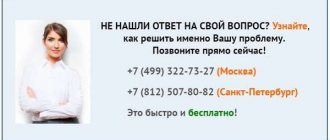What is an individual labor dispute
The concept of individual labor disputes is fixed in the articles of the Labor Code of the Russian Federation. In particular, in this context it is necessary to perceive all conflict situations that have arisen between an employee and an employer and which have not been resolved peacefully. The mandatory features of such a dispute include:
- On one side of the conflict is the employer, represented by the director of the enterprise. And the second may be a current employee of the company, a dismissed employee, or a candidate applying to fill a vacant position.
- The misunderstanding arose due to the reluctance of the participants to comply with legal requirements, the terms of the employment contract, or the provisions of local administrative documents. Often the workers themselves make claims, but the production manager can also initiate a dispute.
- The conflict is considered to have become an ITS after the injured party applies to the commission or court.
In addition, in the process of considering the situation that has arisen, a conclusion may be made to amend the current employment contract, but only in the area of expanding the rights of employees.
Procedure
- The first thing it all starts with is the employee writing and submitting an application.
- The commission registers the received application.
- This application is considered within ten days.
- In the presence of the employee personally, the issue raised is resolved.
If an employee does not show up for a meeting, the process may be postponed to another time.. If this happens again, and there is no compelling reason, the commission has every reason to refuse further proceedings.However, the employee can apply again.
The dispute can be resolved without the presence of the employee, but for this it is necessary to draw up a written statement in advance and notify about it. Half of the people on the employee side, and the same number on the manager’s side, should be under consideration.
- A special act (agreement) is drawn up, which is signed by the chairman of the commission, and which is affixed with the appropriate seal.
Within three days, both parties are given copies of the conclusion.
REFERENCE! Such commissions are created at the request of either the employee or management. They consist of employee and employer representatives (in equal proportions), whose members are elected at a collective meeting.
Further actions after the decision is made, if the employee does not agree and appeals. In this case, the employee can go to court. But this must be done within ten days.
The procedure and terms for consideration of a labor dispute by the commission can be found here.
If the employee agrees with the commission’s decision
- If the commission’s conclusion fully satisfies the interests of the person who applied (and, therefore, worked out in his favor), he should expect the execution of the decision from his employer within the prescribed period. And this period is equal to three days after the expiration of ten days (for appeal).
- If the execution of the decision did not occur in due time, you can safely contact the commission within a month for the appropriate certificate, which was discussed above.
- Next, we present this certificate (within three months) to the judicial authorities, and expect enforcement.
What are individual labor disputes?
Issues of resolving conflict situations are regulated by the Labor Code, the Constitution of the Russian Federation and other legal norms (for example, the Civil Code, if we are talking about issues of material liability of officials).
There are several types of disputes, on which the further procedure and features of resolving the problem that has arisen depend. Depending on the ways of consideration, the following categories are distinguished:
- Non-exploratory. This is a category of conflict situations that can be resolved in a simplified manner by creating a labor dispute commission at the enterprise. As a rule, this concerns attempts by participants to make adjustments to the current employment contract in order to bring it into compliance with the law.
- Claims. A group of disputes that entail filing a claim in court. The basis for contacting the authority is the consideration of a complaint with already dismissed employees or failed candidates. Judicial authorities are authorized to issue orders for compensation for damage caused by unlawful actions of the enterprise administration.
Depending on the subject who prepared the complaint, there are:
- Individual complaint. If a conflict arises only between an employer and one employee, then such a problem is recognized as personal, and therefore the consequences of its consideration will apply only to one citizen.
- Collective dispute. When dissatisfaction with the actions of the company’s administration comes from several workers at once, then we are talking about mass dissatisfaction, which is equally resolved both in court and outside it.
When resolving a conflict with one citizen, the decision made may become the basis for revising the contracts of other employees (if the contract reveals a discrepancy with legal requirements), but the re-signing of the agreement will occur only on the basis of mutual consent of the parties to the legal relationship.
How to write an application correctly?
The writing form is free, but there are a number of rules:
- In the upper right corner we write “To the labor dispute commission.”
- Just below is the name of your company in the nominative case.
- Next, we indicate from whom the application was submitted, i.e. We register our full names. in the genitive case, and the position held.
- Your contact information - address and mobile phone.
- In the middle of the sheet we write “Application”.
- We describe the essence of the problem in detail, preferably indicating the date and time of the events that occurred (when your rights were violated).
For example, “On Wednesday, May 21, 2021, such and such a violation was committed against me...”. And the more details you provide, the greater the likelihood of your rights being restored. - Having outlined the main essence of the issue, we will write the phrase “Based on the above and guided by Art. 386 of the Labor Code of the Russian Federation, please...” And we clearly describe our requirements.
- If you think that it is necessary to recover compensation for moral damage from the employer, write about it.
- And, lastly, we attach to the application evidence that your rights were violated, and we attach a copy of the employment contract and work record book.
Sample application.
IMPORTANT! The application is written in two copies (preferably in your own hand), one of which you leave with the commission, and the second you keep for yourself.
Labor dispute resolution bodies
A complete list of ways to resolve individual disputes is provided in Art. 382 of the Labor Code of the Russian Federation. There are a number of situations that can be resolved by local commissions, but there are also cases where a court decision cannot be avoided.
In accordance with the requirements of Art. 384 consideration of complaints from employees sent to the CCC takes into account the following requirements:
- To create a labor dispute commission, an appropriate expression of the will of the injured party is required. The employee prepares a written application for the formation of a local body for resolving conflict situations, and the director issues a corresponding order.
- The composition of the commission is formed by sending representatives from each conflicting party. This must be done within a maximum of 10 days from the receipt of a written proposal to create a CTS.
- The commission itself elects a chairman by voting, then all decisions are also made by voting.
- All conclusions of the CCC are binding on the parties to the dispute. If a participant evades the fulfillment of his obligations entrusted by the members of the commission, then the injured party will have to go to court for the protection of personal rights.
- The CTS operates with the obligatory maintenance of reporting documents, as well as the issuance of a seal sealing all official papers.
ATTENTION! It is allowed to form a permanent commission at the enterprise, which meets only when necessary; its composition does not need to be re-elected.
The competence of the judiciary in this area will be much broader. Thus, the head of a company may file a claim, deciding that the verdict reached does not comply with the norms of fairness or articles of law.
The injured employee must initiate court involvement under the following circumstances:
- representatives of the CCC did not make a decision within the prescribed period, thereby violating the procedure for considering the conflict;
- desire to appeal the verdict of the dispute commission;
- consideration of a claim for reinstatement of an employee after illegal unilateral termination of a contract;
- establishing the legality of refusal to hire an applicant;
- if the individual complaint concerns monetary issues and compensation for material damage.
The right to initiate the involvement of the court may be a prosecutor who, during a regular inspection, reveals the illegality of the verdict issued by the CCC on an individual complaint.
You may be interested in: The procedure for employee compensation for material damage
Consideration of individual labor disputes in courts
The courts consider individual labor disputes based on applications:
- employee,
- employer,
- trade union protecting the interests of the employee.
The court considers such disputes in the following cases:
- when their participants do not agree with the decision of the labor dispute commission,
- when an employee goes to court without going through the labor dispute commission,
- at the request of the prosecutor, if the decision of the labor dispute commission does not comply with labor legislation and other acts containing labor law norms.
Individual labor disputes are considered directly in the courts (disputes do not fall within the competence of the commission):
- Employee:
- on reinstatement at work, regardless of the grounds for termination of the employment contract,
- on changing the date and wording of the reason for dismissal,
- about transfer to another job,
- about payment for the time of forced absence or about payment of the difference in wages for the time of performing lower-paid work,
- about unlawful actions (inaction) of the employer when processing and protecting the employee’s personal data.
- Employer:
- on compensation by the employee for damage caused to the employer (unless otherwise provided by federal laws).
In addition, individual labor disputes are also considered directly in the courts:
- about refusal to hire;
- persons working under an employment contract with employers - individuals who are not individual entrepreneurs, and employees of religious organizations;
- persons who believe that they have been discriminated against*.
*Article 3 of the Labor Code of the Russian Federation prohibits discrimination in the sphere of labor, establishing equal opportunities to exercise one’s labor rights.
In accordance with the provisions of this article, no one can be limited in labor rights and freedoms or receive any benefits, regardless of:
- floor,
- race,
- skin color,
- nationality,
- language,
- origin,
- property, family, social and official status,
- age,
- living place,
- attitude towards religion,
- political beliefs,
- belonging or not belonging to public associations,
- as well as from other circumstances not related to the employee’s business qualities.
At the same time, establishing differences, exceptions, preferences, as well as restricting the rights of workers, which are determined by the requirements inherent in this type of work established by federal law, or due to the special care of the state for persons in need of increased social and legal protection, are not discrimination.
Persons who believe that they have been discriminated against in the world of work have the right to apply to the court:
- on the restoration of violated rights,
- compensation for material damage,
- compensation for moral damage.
As mentioned above, an employee has the right to apply to a court of general jurisdiction to resolve an individual labor dispute within three months from the day he learned or should have learned about a violation of his right, and in disputes about dismissal - within one month from the date of delivery him copies of the dismissal order or from the date of issue of the work book.
In this case, the employer has the right to go to court in disputes about compensation by the employee for damage caused to the employer within one year from the date of discovery of the damage caused.
If, for good reason, the deadlines established by the provisions of Article 392 of the Labor Code of the Russian Federation are missed, they can be restored by the court.
Now let’s look at what is recognized as valid reasons, in the presence of which the statute of limitations for labor disputes can be restored.
Paragraph 5 of the Resolution of the Plenum of the Supreme Court of the Russian Federation dated March 17, 2004. No. 2 “On the application by the courts of the Russian Federation of the Labor Code of the Russian Federation” it is established that circumstances that prevented the given employee from timely filing a claim in court for resolution of an individual labor dispute can be regarded as valid reasons for missing the deadline for going to court. For example:
- plaintiff's illness
- his being on a business trip,
- impossibility of going to court due to force majeure,
- the need to care for seriously ill family members.
But the presence of such a disability is not considered by the courts as a valid reason for missing the established deadlines.
Thus, the Volgograd Regional Court in its appeal ruling dated November 23, 2012. in case No. 33-11901/2012, he rejected the claim to establish the fact of labor relations and collect wages, since the plaintiff missed the statute of limitations and no valid reasons for missing the deadline were established. At the same time, references in the plaintiff’s complaint to his legal illiteracy and the impossibility of protecting his rights due to physical disabilities (the plaintiff has a disability) were not recognized as valid reasons for missing the deadline for judicial protection of violated rights.
In accordance with the provisions of Article 393 of the Labor Code of the Russian Federation, when an employee files a claim in court for claims arising from labor relations*, he is exempt from paying fees and court costs.
*Including regarding non-fulfillment or improper fulfillment of the terms of the employment contract, which are of a civil nature.
General procedure for consideration of labor disputes
If workers' rights are violated, an individual dispute must be resolved peacefully. This will save time and personal savings. To exercise the right to pre-trial settlement of a controversial situation, you need the following algorithm of actions:
- Receiving a petition from the injured party, which details the essence of the claims and the legal requirements for their elimination.
- Registration of the request in the reporting documents of the CTS. Be sure to indicate the date of receipt of written claims, since the time frame for resolving individual disputes is short.
- Setting the next date for the meeting of the CCC and notifying interested participants of the need to attend the meeting.
- Making a final decision and sealing it.
- Familiarization of the parties with the verdict.
In addition to familiarizing themselves with the claims of participants, witnesses are invited and material evidence of violations is collected. Only after a comprehensive study of the conflict is an official verdict made.
Review period
A month after filing a complaint, the interested person can familiarize himself with the received conclusion of the CCC on an individual dispute. Thus, the following categories of disputes are distinguished:
- 1 month is the deadline during which consideration of a dispute regarding violations can be initiated;
- 10 days – the time allotted for sending their representatives to the local commission (counted from the date of receipt of the application or order for the formation of the CCC);
- 10 days – consideration of the conflict and making a final decision (the date of receipt of the complaint is not taken into account);
- 10 days – period for appealing the decision;
- 3 days is the time limit for the participants to fulfill the decision made.
If the conflicting parties have not voluntarily complied with the order of the CCC, then the interested citizen (a member of the team or a representative of the director) can contact the bailiff service to enforce the measures taken. This can be done within 90 days from the end of the meeting on the dispute.
You may be interested in: Procedure for calculating and paying for forced absence
It is possible to resolve the conflict immediately in court without forming a CCC. But the judge will definitely ask why there were no attempts to resolve the individual dispute on their own. This will not affect the final verdict, but the employee will have a better chance of satisfying the claim if he was previously denied satisfaction of the stated requirements.





